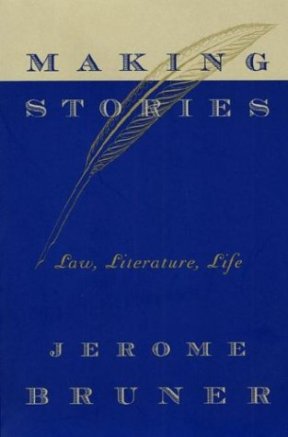As promised, I am reposting the entirety of the post last week detailing the Letters to the Soviet Writers Conference from the Conference on the Status of Soviet Jews. The letters are posted below, with hyperlinks to a pdf version. Enjoy!
I was cleaning up my office last week when I stumbled upon a set of letters that Robert Penn Warren helped draft for the Conference on the Status of Soviet Jews. I had sought these letters out back in the Fall because of an obscure reference in the Collected Writings of Robert Penn Warren to his participation on this group. Fortunately, Randy Hendricks of the University of West Georgia had copies. The Conference on the Status of Soviet Jews was the first American Conference to consider the status of Soviet Jews and included amongst its congregants: Robert Penn Warren, Martin Luther King, and Justice William O. Douglas to name a few. The conference met in New York’s Carnegie Center in October 1963. The conference was largely the result of work by Moshe Dechter  , who earlier that year highlighted the plight of Soviet Jews in a Journal of Journal of Foreign Affairs Article titled The Status of Jews in the Soviet Union. There Dechter described the Jewish plight as:
, who earlier that year highlighted the plight of Soviet Jews in a Journal of Journal of Foreign Affairs Article titled The Status of Jews in the Soviet Union. There Dechter described the Jewish plight as:
Soviet policy places Jews in an inextricable vise. They are allowed neither to assimilate, or live a full Jewish life, nor to emigrate (as many would wish) to Israel or any other place where they might live freely as Jews…Soviet policy as a whole, then, amounts to spiritual strangulation—the deprivation of Soviet Jewry’s natural right to know the Jewish past and to participate in the Jewish present. And without a past and present, the future is precarious indeed.
The main piece of the Warren letters is a plenary letter addressed to the Fourth All-Union Congress of Soviet Writers by various American writers. Amongst the signatories include: Robert Penn Warren, Ralph Ellison, Irving Howe, Norman Mailer, Author Miller and John Updike to name a few. Warren begins the letter by calling the Soviet writers to remember distinctive role that Russian authors have played as social critics as a call to action on behalf of an impressed people:
As you can perhaps sense, we are aware that, however honorable the craft of the writer may be, yours is a mission beyond that of writers. For in your country, probably more than in any other country’s literary tradition, the role of the writer has always transcended art. The writer has been uniquely, social critic, intellectual goad, moral guide, tribune of the people’s conscience.
You, Soviet writers, are the heirs of Pushkin and Belinsky, of Tolstoy and Herzen, of Dostoevsky and Chekhov of Gorky and Mayakovsky. But in a sense, all of us, all writers everywhere, stand in that tradition and are its children. And it is indeed in its spirit and as bearers of a moral burden, that we turn to you now and ask you to consider the painful situation of Jewish literature and culture in the Soviet Union today.
Warren’s letter, signed by other writers, and approved of by the Conference on the Status of Soviet Jews calls on the Soviet writers to stand with Jewish persons to preserve their culture through schools, research, theaters and the like.
Warren’s interest in the conference likely stems from his fascination with the idea of exile, and the role that exiles play in defining the society they are exiled against. For Warren, the exile (particularly the American Southern Exile) presented the ideal being to confront the self against the past, the self as defined by the past, and the self as trying to be free from the past. No matter who you were as an American southerner, the past was unhappy. As a segregationist, the past reminded you that those days were passing. As an integrationist, the past was an exemplar of inescapable human violations. As Jonathan Cullick writes in Making History: The Biographical Narratives of Robert Penn Warren (LSU 2000): “Warren’s protaganists and narrators struggle between a desire to liberate themselves from the past and a need to shape their identities in the context of the past.” In doing so, Cullick writes, Warren “demonstrates the knowledge gained through return and reconciliation redeems us from the concept of the past as a burden, permitting one to be connected to the past rather than haunted by it.” Warren’s work on the Jewish Exile committee seems well placed for his desire to create space for humans to confront their past as a precursor to understand both their present and the future.
There is more to say here. I have posted the letters in PDF form below. Enjoy! The first one is particularly great. Perhaps a future post on Warren’s view of the exile in American lit would be appropriate. For now, I still have more treasures to unlock. For example I just found my lost volume by George Marsden The Soul of the American University. Some day soon I’ll talk about that, particularly with all of the U.S. news discussion lately.
Robert Penn Warren Letter to Fourth Soviet Writers Conference
Letter to James Dickey enclosing Letter to Soviet Writers Conference
Cover letter enclosing draft to Writers Conference
Image of Moshe Dechter taken from New York Times Obituary.
Note — Letters are posted with the permission of the Estate of Robert Penn Warren.


 Nomi’s presentation was followed by Rebecca who described the interesting issue relating to place in the form of terroir — literally meaning of dirt. Rebecca spoke of the role that geographic indicators play in the current intellectual property market and asked some thought provoking questions regarding the role of translating, time, and in essence the factual path of the law. For instance, we learned that
Nomi’s presentation was followed by Rebecca who described the interesting issue relating to place in the form of terroir — literally meaning of dirt. Rebecca spoke of the role that geographic indicators play in the current intellectual property market and asked some thought provoking questions regarding the role of translating, time, and in essence the factual path of the law. For instance, we learned that 
